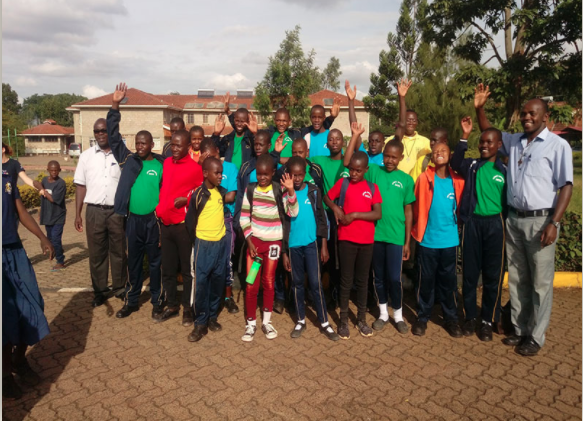KENYA: Sister Jackline Mwikali Mwongela reflects on her time as a social worker at Don Bosco Boys Town

(MissionNewswire) Don Bosco Boys Town (also known as Bosco Boys), located in Nairobi, Kenya, provides education and technical skills training to former street children and is currently serving more than 600 boys and girls in primary, secondary and technical school. Bosco Boys also has a reception and rehabilitation center known as Bosco Boys Langata, which was established in 1994 by the Salesian priests to help boys overcome addictions and behaviors learned on the street.
According to a recent article in the Global Sisters Report, 32 boys ages 5-11 are undergoing rehabilitation at the moment, and more than 3,000 have benefited from this center. Some of the boys live at the center, but others are day students. The boys usually stay from one to two years, and a good number of them are successfully rehabilitated.
Sister Jackline Mwikali Mwongela, a Sister of the Institute of the Virgin Mary (Loreto), has been volunteering as a social worker at Bosco Boys since 2017 as part of her practicum requirement for her bachelor’s degree in sustainable human development at Tangaza University in Nairobi. Sr. Mwongela wrote an article about her experiences working at Bosco Boys.
She said, “At the Bosco Boys informal school, I teach art and life skills and serve as counselor and after-school tutor. This informal setting is a basic preparation for some of the boys to later attend Kuwinda, a primary boarding school. I like the boys and find them friendly and cooperative, and we have grown in mutual understanding and trust. I also find they are unusually responsible in doing their work, except at times when they fall behind in doing homework.”
As part of Sr. Mwongela’s education through online courses at Loyola University in New Orleans, she studied Catholic social teachings and how to apply them in ministries. As part of her education, she was required to design a project. She taught a Catholic social teaching workshop in Swahili for the parents and guardians of the boys at Bosco Boys. The goal was to help parents and guardians understand their rights and responsibilities about reverence and dignity.
“Through the workshop we learned more about how unemployment creates serious disadvantages for the people in the slums,” explained Sr. Mwongela. “Both women and men do manual work for long hours—being paid very little—and their work environments are often inhumane. Most parents are day workers, and some, scavengers. Others brew illegal local beer or send their children out to beg. Their boys also were forced to work for employers who underpaid or failed to pay them. They lost their sense of dignity and self-esteem.”
She added, “After that workshop, we at Bosco Boys decided to provide the guardians and parents with the skills to help them gain self-reliance. We have tried to motivate them and sensitize them to save even small amounts of income for future skills courses or to start small businesses. A good number of them followed through and have dreams of becoming entrepreneurs. Seeing their parents make these efforts will also help prevent the boys from going back to the streets. Unfortunately, we had just begun this when the coronavirus intervened. I can only hope what we started will continue once the restrictions are over.”
Despite the steady growth of Kenya’s economy, according to UNICEF, more than half of the country’s population lives below the poverty line on less than $1 a day. UNICEF also noted that Nairobi is home to 3 million residents, most of whom endure lives of extreme poverty in the city’s slums. The most vulnerable are families and children who live in these urban slums and in areas of the country most affected by HIV/AIDS. Many do not have access to health care, nutrition, sanitation or education.
Youth living in Nairobi’s slums are at risk for exploitation, forced labor and other abuses. Few attend the later stages of school as compared to those living in Kenya’s more rural areas. The few schools serving this disadvantaged community are beyond the financial means of most families. UNICEF noted that while Kenya has free and compulsory education, youth in poverty still cannot afford to attend school. Close to 90 percent of children from poor households fail to complete their basic education.
###
Sources:
Photo courtesy of Don Bosco Boys Town Kenya
Global Sisters Report – Bringing Catholic social teaching to boys recovering from street life
Salesian Missions – Kenya
UNICEF – Kenya Statistics





